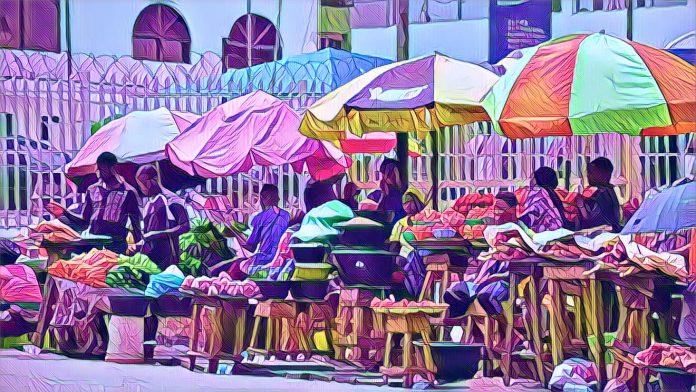Nigeria’s inflation rate has seen a decline, offering some relief to the economy. However, despite this positive development, many Nigerian consumers are still grappling with high living costs and economic challenges that continue to impact their daily lives.
Inflation Rate Decline: A Sign of Hope?
According to the latest figures from the National Bureau of Statistics (NBS), Nigeria’s inflation rate fell to 18.7% in July, down from 19.2% in the previous month. This marks the first decrease in several months, providing a glimmer of hope for an economy that has been under pressure due to high inflation rates and a fluctuating currency.
The drop in inflation is primarily attributed to a decrease in the prices of food and non-alcoholic beverages, which make up a significant portion of Nigeria’s inflation basket. In addition, there have been slight improvements in supply chains and a stabilization of fuel prices, which also contributed to the decline.
Consumers Still Feeling the Pinch
Despite the decrease in inflation, many Nigerians continue to feel the pinch of rising costs. Food prices, although slightly lower than in previous months, remain high and unaffordable for many families. Staples such as rice, beans, and cooking oil are still costly, leaving consumers struggling to make ends meet.
“I was happy when I heard inflation was going down, but when I went to the market, I didn’t see much difference in the prices,” said a Lagos resident, who expressed frustration over the persistently high cost of living. This sentiment is shared by many Nigerians, who feel that the reported decline in inflation has yet to translate into meaningful relief in their everyday expenses.
Economic Challenges Persist
Economists warn that while the drop in inflation is a positive sign, it does not necessarily indicate a full recovery or a stable economic outlook. Nigeria’s economy continues to face several challenges, including high unemployment rates, low foreign investment, and a heavy reliance on oil exports. These factors contribute to economic instability, making it difficult for the average Nigerian to feel any immediate benefits from the falling inflation rate.
The recent flooding in parts of the country has also exacerbated the situation, disrupting agricultural production and contributing to food shortages in affected areas. This has further driven up food prices, negating some of the positive impacts of the lower inflation rate.
Government’s Efforts to Ease the Burden
In response to the economic challenges, the Nigerian government has implemented several measures aimed at easing the financial burden on consumers. These include social intervention programs, subsidies on agricultural inputs, and efforts to stabilize the currency. However, many of these initiatives have been criticized for being ineffective or poorly executed.
The Central Bank of Nigeria (CBN) has also played a role in managing inflation by adjusting interest rates and implementing policies to control money supply. While these efforts have helped to some extent, they have not been enough to significantly reduce the cost of living for most Nigerians.
Calls for More Comprehensive Solutions
As Nigeria continues to navigate these economic challenges, there is growing pressure on the government to adopt more comprehensive solutions to address the underlying issues driving inflation and high living costs. Experts are calling for greater investment in agriculture, improved infrastructure, and policies that promote economic diversification.
There are also calls for better transparency and accountability in the implementation of government programs. Many Nigerians believe that more effective governance is crucial to ensuring that economic benefits reach those who need them most.
Looking Ahead: A Glimmer of Hope
While the path to economic recovery remains uncertain, the recent decline in inflation offers a glimmer of hope for Nigeria. With the right policies and continued efforts to stabilize the economy, there is potential for further improvements in the months ahead.
For now, many Nigerians are holding onto hope that the reported decrease in inflation will eventually lead to more tangible benefits in their daily lives. As the country continues to face economic challenges, the resilience of its people remains a source of strength and optimism.
Source: BusinessDay.ng



